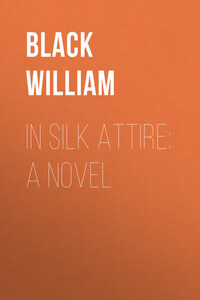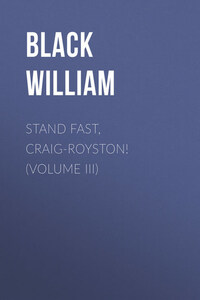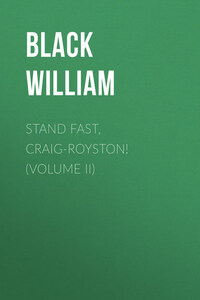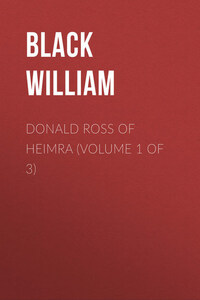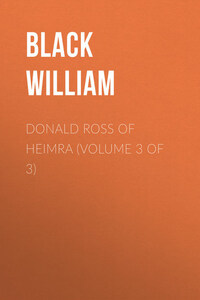"I am gathering myself together for a great leap, Jack."
"Don't look so sad about it, then. Take it as you would one of your Berkshire fences, Harry, with a firm seat and a cool hand."
"If I only knew what was on the other side, Jack – that bothers me."
"By the way, did you hear of the dinner at old Thornhill's on Tuesday? I declare everybody was drunk but the dogs; and they were turned out at night to find their way home by themselves. The Squire got very, very bad – port and brandy alternately – tumbled twice off his horse before he got out of the gate; and then, half an hour after, when the rest of us rode home, we found him sitting in the middle of the road, in the dark, trying to ward off the dogs that had gathered round him and were for licking his face, while he hiccuped to them 'G – go away, my good people – g – go away – I've really nothing for you; 'pon my soul, I've forgot my p – purse.' But what's the matter, Harry? You haven't heard a word of my story; and you're looking as glum as a parson."
"Jack, I'm going to marry."
"Don't be a fool."
"I am, though. It's all over with me, Jack. I told you I was gathering myself together for a great leap."
"Who is it, Harry?"
"Annie Napier."
There was an interval of dead silence. Mr. John Palk was too prudent a man to hazard a hasty witticism, knowing as he did the somewhat fiery temperament of Harry Ormond, Marquis of Knottingley.
"Do you mean that, Harry?"
"I do."
"You're in luck, then, lad. But what a host of rivals you'll have blaspheming you! Why, all London is at Miss Napier's feet. Lord Sotheby and I went to see her last night – the people in the pit were half crazy about her. And when we went round to Millington House for some supper, Sotheby swore he'd give his soul to the devil for a hundred years to get an introduction to Annie – I beg your pardon, to Miss Napier."
"Fellows like Sotheby are rather free in offering their soul to the devil," said Lord Knottingley, with a sneer, "perhaps because it is the thing of least value they have about them; or because they know the devil will have it for nothing by-and-by."
"If you marry Miss Napier, Harry, you'll be killed in a month. I tell you, man, London won't stand it. Why, they say that the Duke of Nor – "
Knottingley started to his feet – his face scarlet, his eyes hot and angry.
"By God, I will drive a sword through the man who breathes that lie in my hearing!"
"Don't scowl at me, Harry. I don't believe it."
"Do I care a straw who believes it? But we needn't waste angry words, Jack. I have known Annie Napier for years; and our family has been rather celebrated for its jealousy. If I, an Ormond, marry that girl, people may conclude that there will be no longer a market for their scandalous wares. And mind you, Jack – don't you talk of it to any living soul; for I haven't even asked her yet; but she, or nobody, will be my wife."
John Palk went home to order supper for a little party of card-players who were to meet at his house that night; and Harry Ormond had promised to call in during the evening – that is, the card-playing evening, which began when the men got home from the theatre.
Knottingley was himself at the theatre that evening. From his box he sent round the following note to the lady who, at that time, held London captive with the fascination of her genius and her personal loveliness:
"DEAREST ANNIE, – I shall await your coming home. I have something particular to say to my little sister. H."
He was alone in the box; and he sate there, alternately entranced by the sweet tones of the voice he loved, and enraged by the thought that all this houseful of people were sharing a satisfaction which by right belonged to him alone. When they applauded – as they did often and vehemently, for Miss Napier was the idol of the time – he scowled at them as though they were insulting the woman whom he hoped to make his wife. He resented their rude staring as an indignity visited upon himself; and when, at the end of the act, they turned and talked to each other about the great actress, his family passion drew dark meanings from their smiles and whispered conversations, and his heart burned within him. A night at the theatre was not a pleasure to Harry Ormond. He left so maddened by love and jealousy that he became a joke to his companions – behind his back, be it understood, for he had a quick temper and a sure eye with which the wits did not care to trifle. He was not a man to be provoked or thwarted lightly; and in this period of contrariety, disquietude, and gusty passion, which falls, in some measure or other, to the lot of most young men, a discreet avoidance of irritating topics was the course which wisdom dictated to Lord Knottingley's friends. Not that he was a sullen boor or bravo, eager to tread on any man's corns, and kill him for swearing. He was naturally light-hearted, fickle, generous; impulsive in every mood of affection or dislike; and at this time, when these uncomfortable love-measles were strong upon him, he as often quarrelled with himself as with his neighbours. He was sensitive and proud; he was naturally jealous; his sweetheart, worse luck, was an actress; and it was a time, as some of us can remember, when scandal was cultivated as an art. It is not to be wondered at, therefore, that Harry Ormond suffered all the tortures, while enjoying few of the amenities of love.
